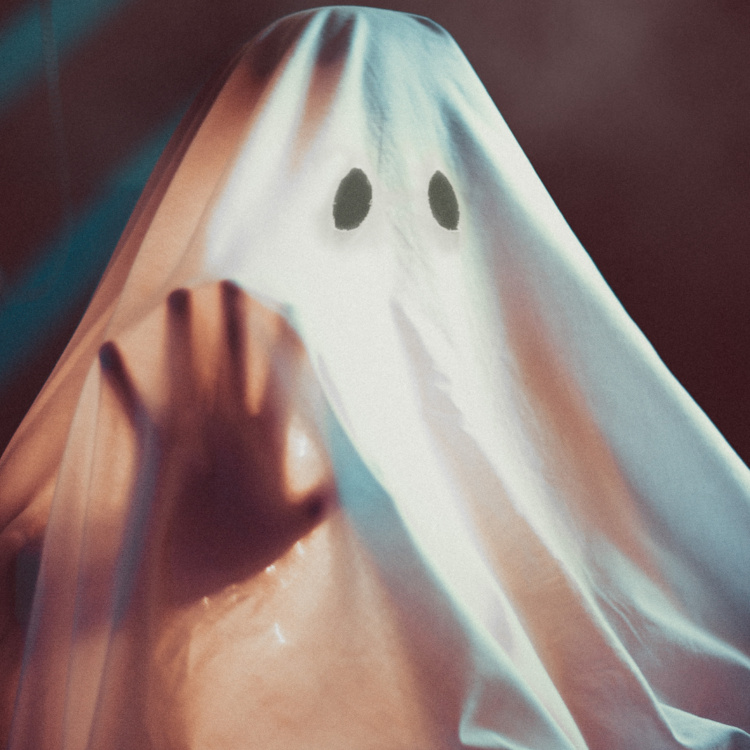Queer horror has been a commonplace of the fall season for centuries, spanning from novels like “The Picture of Dorian Grey” to movies like “Jennifer’s Body” and TV shows like “Yellowjackets.” The Center for Creativity celebrated queer horror this Wednesday with the workshop “Everybody Has a Secret Face: Queer Horror & Poetry.” Held in the Text & conText lab on the third floor of Hillman Library, the event served to welcome the fall season with a lesson in writing and representation.
The Center for Creativity programming and communications manager Erik Schuckers ran the workshop and focused it on the queer horror genre and its place in modern media. He also spoke on the subsequent representation of LGBTQ+ people throughout horror projects and how that representation can be both positive and negative. Schuckers reviewed movies with prominent queer characters and themes, like “Interview with the Vampire” and “Fright Night,” along with movies that had quieter queer subtexts, like “Scream.” Junior English writing major Ashley Pennock spoke on the importance of representing queer identities in the horror genre and the importance of workshops like “Everybody Has A Secret Face.”
“I mean, I think it’s really important to focus specifically on queer identities since, historically, they’ve not been represented as much, and especially in the horror genre that has been, like, a space for queer identity,” Pennock said.
After the lecture, the group began to work on poetry writing prompts, or “excorsizes” as Schucker’s called them. “Excorsize” one began with a reading of “Things to Do in Carrie (1976)” by Schuckers, which went through the plot of the movie “Carrie” as if its plot elements were items on a to-do list. Workshop members were told to use one of their favorite horror films to write a list poem similar to “Things to Do in Carrie (1976),” playing with style and ordering to achieve a new creative take on the movie of their choosing. The writers were given one rule — to put action into every line to create an implied “you.”
The second activity began with the poem “On the Origin of Trans Femmes” by Kai Chang Thom from the anthology “Queer Little Nightmare: An Anthology of Monstrous Fiction.” The poem painted trans femmes as “the daughters of witches,” and how they will persevere through bigotry and hate. The idea of a witch or typically villainous character that is spun in a new light to be empathized with was the focus of “excorsize” two.
The writers were told to write a poem from the point of view of a monster or someone who loves them, such as a friend, partner or relative. Participants began by choosing their character and free writing about scenes and images that come to mind. By getting into the mindset of the characters or the loved ones they were portraying, the workshop writers could better portray them and create empathy from their readers.
Shauna Gelman, a first-year English literature student, attended the workshop and found playing with poetry to be less stressful than imagined. The workshop was Gelman’s first event with the Center for Creativity, and she was happy to find poetry easier than she initially thought, thanks to the writing prompts.
“Poetry is a lot less scary than people think it is. The horror does not come from the poetry itself,” Gelman said.
The final prompt began with a reading of the poem “Hairy Knuckles” by Chad Helder, which drew away from horror and instead focused on the experience of watching a scary movie with someone and being in the moment with a loved one. Workshop participants were encouraged to write about watching a horror movie with someone they loved, whether that be a friend, family member or romantic partner. This invited the writers to explore their five senses in writing and tie memories in with imagination, as they could create a scene or write about a past one. The writers were told to think about the physical situation and surroundings, like what was happening on the imagined movie screen and where the speaker was.
Schuckers has been running “Everybody Has a Secret Face” for four years, creating it from his combined love of poetry and queer horror. The workshop took place online during the COVID-19 pandemic, but he was glad to see it back in person and see participants collaborating and sharing. Schuckers aimed the workshop towards a wide audience of students, including those who have an interest in poetry, horror or simply want to try something new.
“I love sort of combining those things, because we usually get a mixture of people who are into poetry and maybe have a kind of passing interest in horror, and vice versa, we get people who are really into horror and maybe haven’t tried poetry before, or have sort of dabbled in poetry but aren’t really sure how they feel about it,” Schuckers said. “So it’s really nice to be able to combine those two things and get people to think creatively in a new way about the way that they write and where they get their ideas from.”


